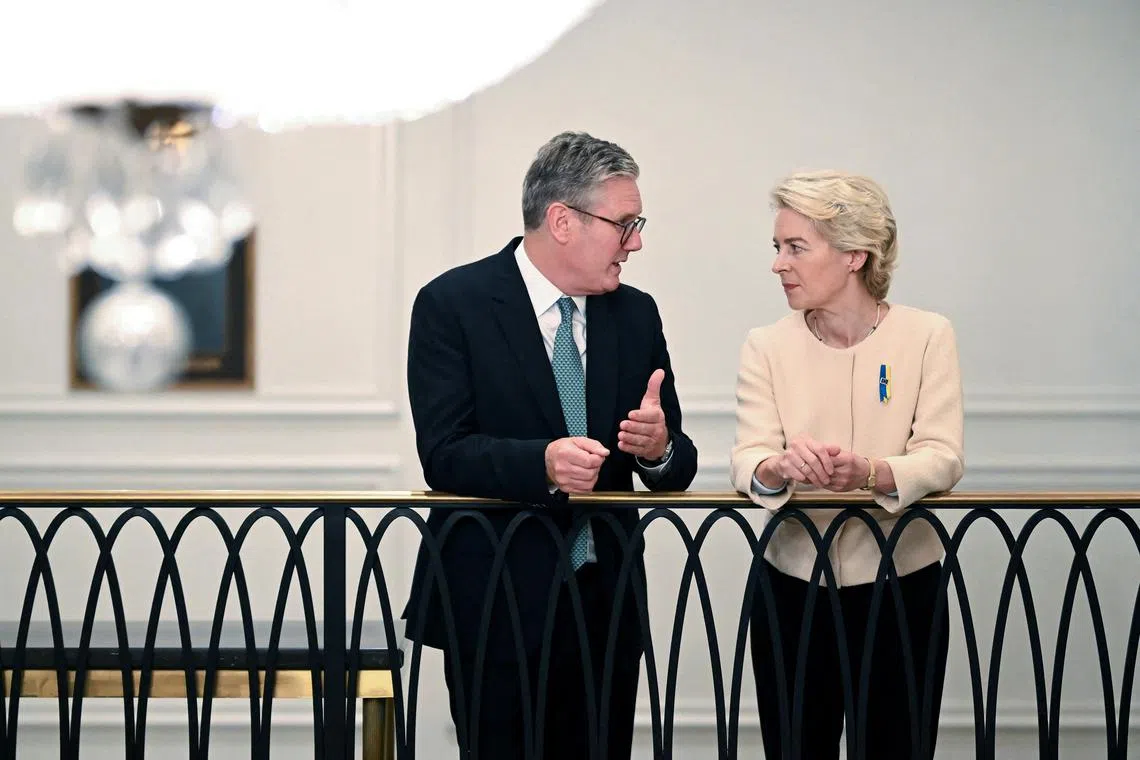UK PM Starmer visits Brussels for first talks on EU reset
Sign up now: Get ST's newsletters delivered to your inbox

British Prime Minister Keir Starmer will push for a reset of relations when he meets European Commission president Ursula von der Leyen on Oct 2.
PHOTO: REUTERS
BRUSSELS/LONDON – British Prime Minister Keir Starmer met European Commission president Ursula von der Leyen on Oct 2 as part of his push for a reset with the EU and a first chance to discuss issues like trade, security and youth mobility with Brussels.
Mr Starmer, whose Labour Party won an election in July
“I firmly believe that the British public wants a return to pragmatic, sensible leadership when it comes to dealing with our closest neighbours,” Mr Starmer said after arriving in Brussels.
He has already visited Berlin, Paris, Rome and Dublin to lay the groundwork for a reset in ties.
Besides Dr von der Leyen, Mr Starmer will also hold talks with European Council president Charles Michel and president of the European Parliament Roberta Metsola on Oct 2.
A Commission spokesperson on Sept 30 described the meeting with Dr von der Leyen as the “beginning of a conversation”, on how the relationship between Britain and the bloc could evolve.
“Our alignment on global affairs provides a good foundation for our bilateral relations,” Dr von der Leyen said after greeting Mr Starmer, emphasising the EU’s strong alignment with Britain in European security concerns and climate change. “We should explore the scope for more cooperation, while we focus on the full and faithful implementation of the withdrawal agreement.”
Mr Starmer has ruled out any return to the EU’s single market, its customs union or freedom of movement arrangements, but has pledged to seek a new veterinary agreement aimed at reducing border checks, and also wants the mutual recognition of certain professional qualifications and easier access to the EU for artistes on tour.
While Mr Starmer’s warmer tone has been welcomed by EU leaders, both sides have recognised that changes in the substance of the relationship will be subject to tough negotiation, even if the main tenets of the Brexit settlement are not touched.
For instance, he has said there are no plans for a youth mobility scheme, rejecting an EU proposal to allow EU citizens aged 18 to 30 to live in Britain and young Britons to stay in the EU for up to four years.
Youth mobility is a key EU demand and London’s acceptance, perhaps in a watered down form, may be a condition for moving forward on Britain’s wish list. REUTERS


